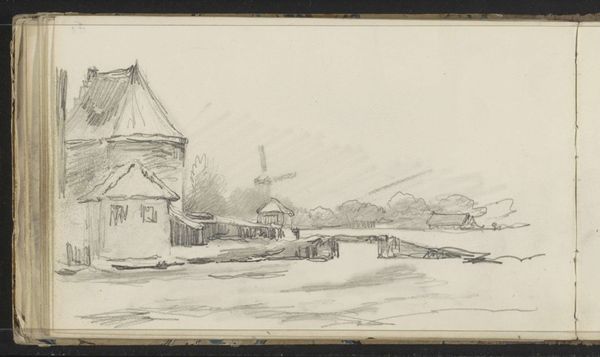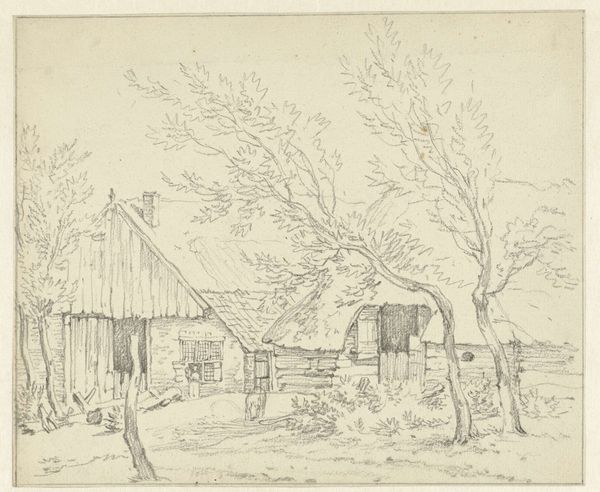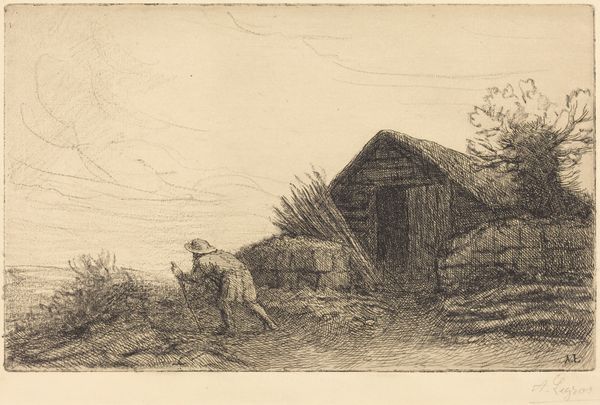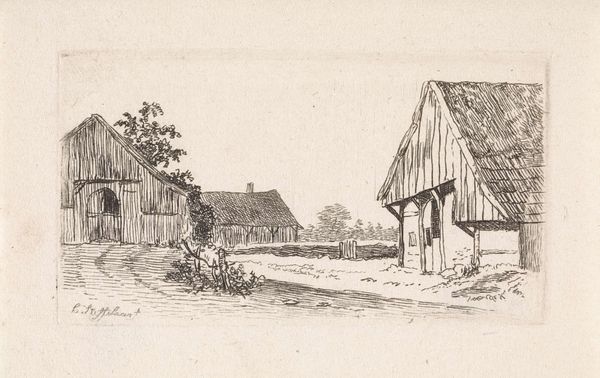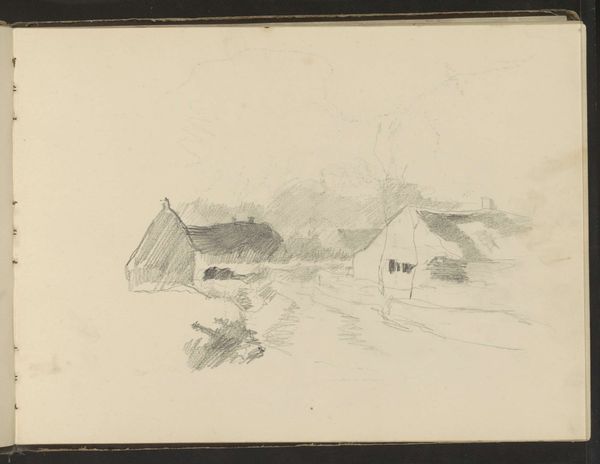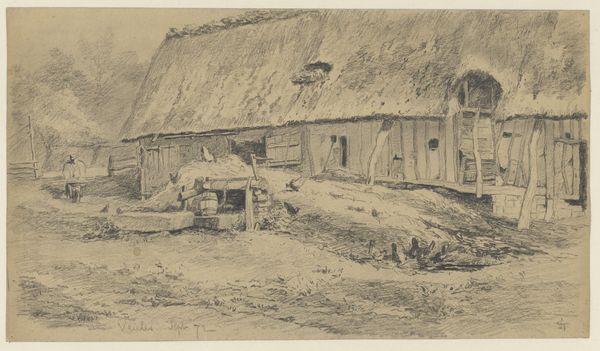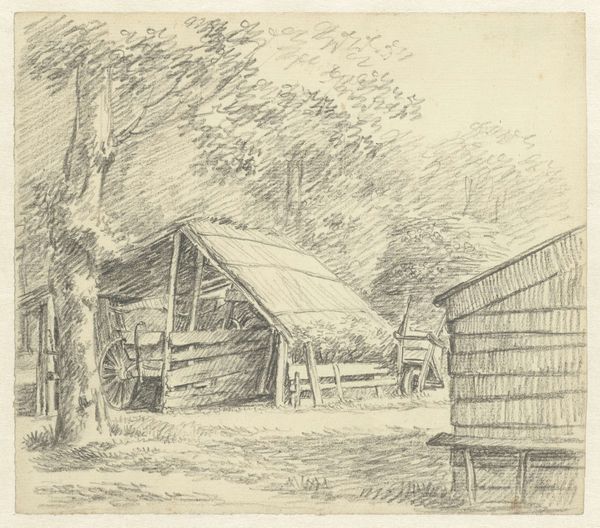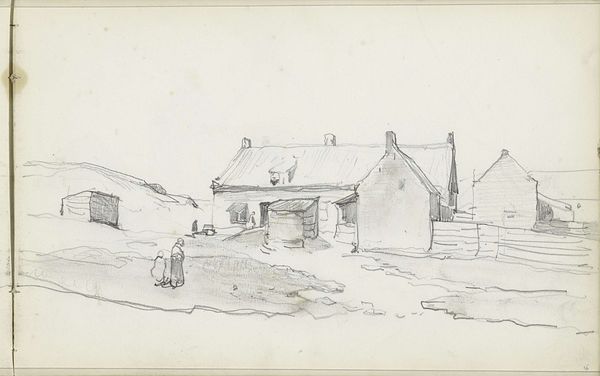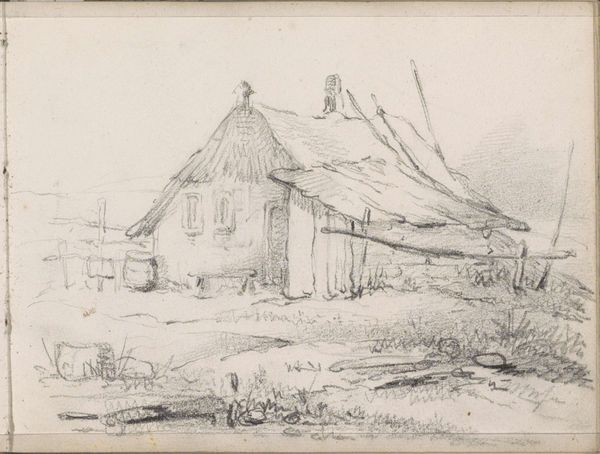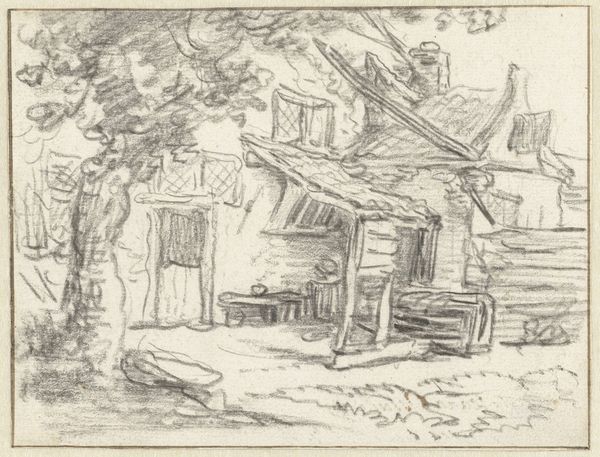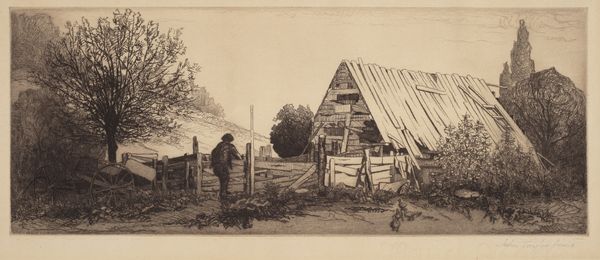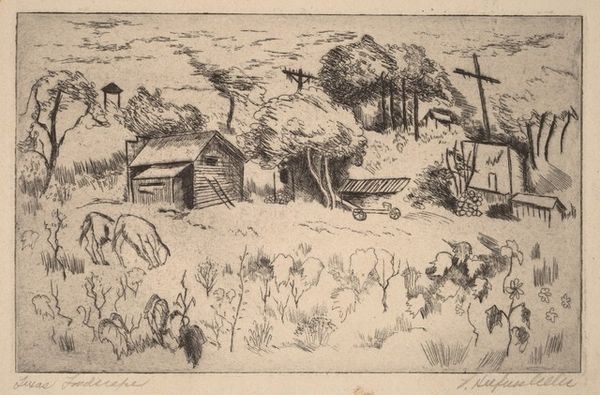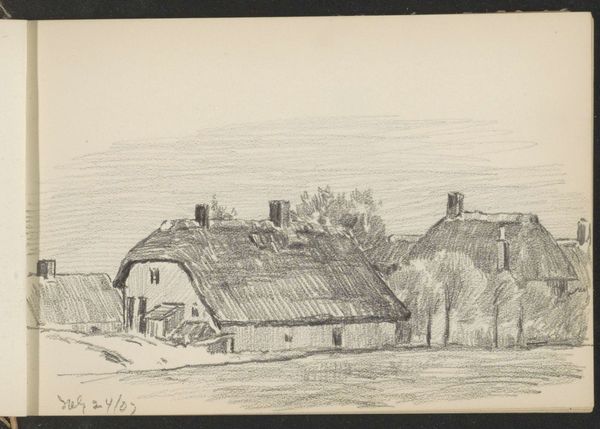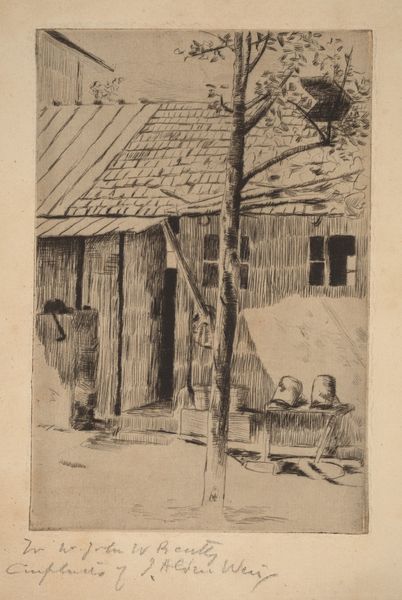
print, etching
# print
#
etching
#
landscape
#
expressionism
#
line
#
cityscape
Dimensions: plate: 20.96 × 27.31 cm (8 1/4 × 10 3/4 in.) sheet: 32.7 × 50.48 cm (12 7/8 × 19 7/8 in.)
Copyright: National Gallery of Art: CC0 1.0
Curator: This etching by Edvard Munch, "Laundry Drying in Travemünde" from 1904, it is really interesting to analyze from a social and political point of view. Editor: It's deceptively simple. A street, some houses, laundry hanging out to dry. It looks rather ordinary at first glance, but there's something melancholic about the scene. What is it that interests you in this particular print? Curator: I see much more than ordinary life. Think about the role of domestic labor, primarily done by women. The laundry becomes a symbol of that invisible work. The image is of the turn of the century, right as the avant-garde is gaining force; meanwhile the work that provides the time and space for art making is, by design, concealed in plain sight. Don’t you think it's quite poignant? Editor: That's fascinating; I hadn't considered that perspective. The laundry almost becomes a ghostly barrier, or even a stage curtain separating the "public" sphere from the domestic. Curator: Precisely. Munch's Expressionism is not just about individual angst. His work reflected his environment and comments on societal expectations and lived realities. Even the very act of creating an artwork to show "women's work" turns these actions into artistic fodder. Munch's prints become sites where these unspoken societal dynamics can be explored. Editor: This makes me see it very differently. It makes the familiar unfamiliar. Thanks for your interpretation. I am interested in Munch’s broader understanding of Expressionism now! Curator: It's a start, but I hope this conversation opens the door to consider the importance of these domestic realities, particularly that labor has consistently been undervalued in cultural discourse.
Comments
No comments
Be the first to comment and join the conversation on the ultimate creative platform.
